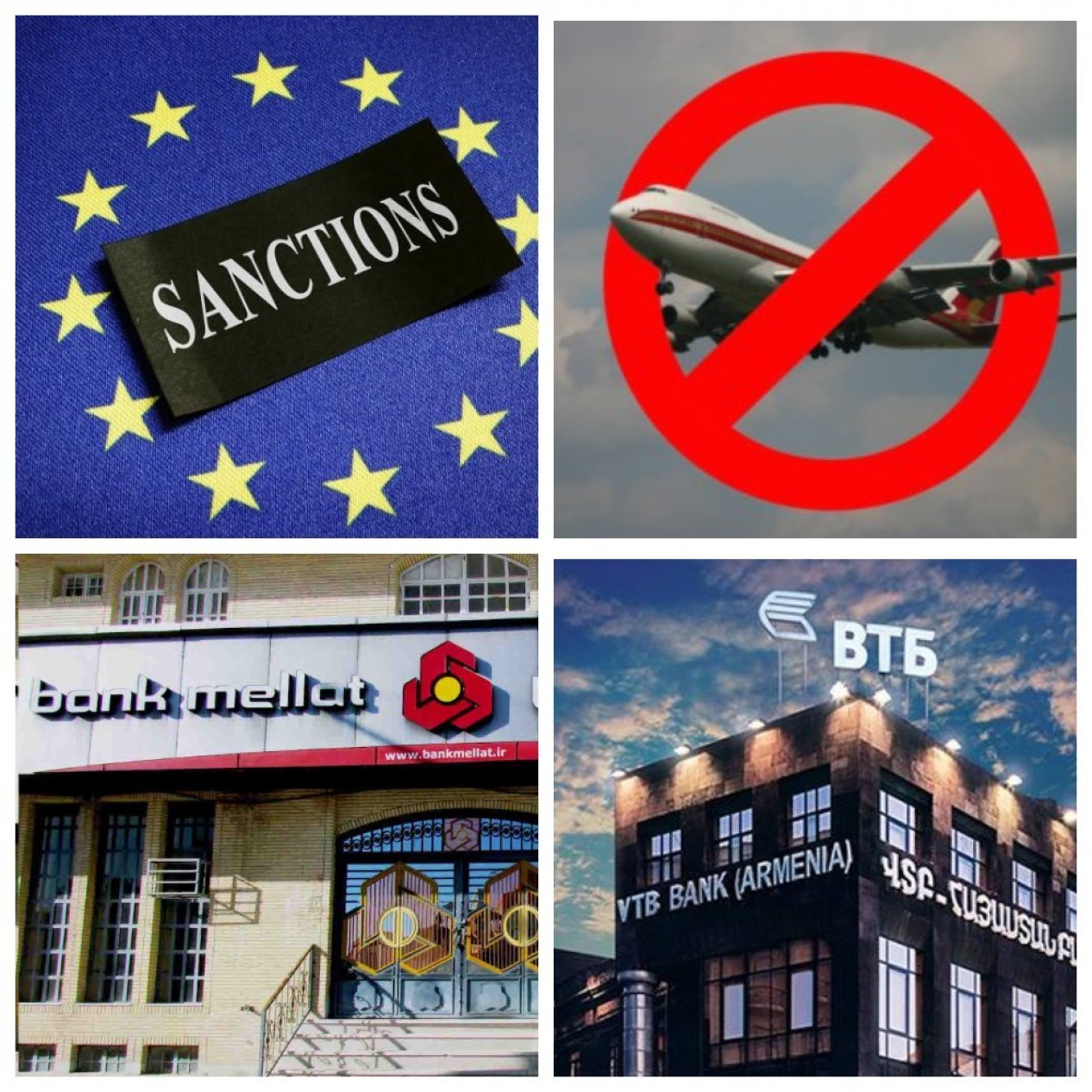
The US Treasury Department has announced a list of new institutions and legal entities that violate the requirements of the sanctions it imposed against the Russian Federation in 2022. According to the information, companies belonging to China, Belarus and Armenia were included in the sanctions package for violating the export control measures against Russia. In total, 57 legal entities belonging to those countries were additionally included in the sanctions list of the US financial administration. (source)
According to the results of the investigations conducted by the Office of Foreign Assets Control (OFAC) of the US Department of the Treasury, 5 legal entities, i.e. commercial companies, operating in Armenia have been sanctioned.
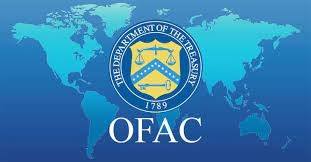
This list includes Taco LLC, Areximbank-Gazprombank Group, VTB Bank Armenia, Bank Mellat, Flight Travel LLC. (source)
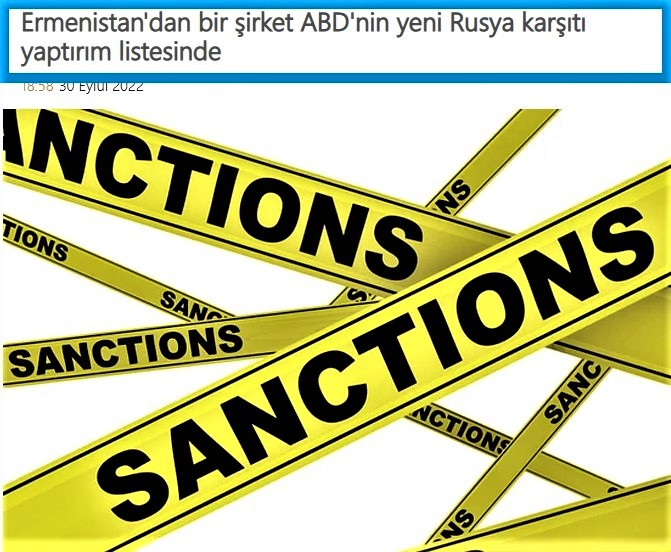
Among the companies owned by Armenia, the assistance of Taco LLC to Russia in the Ukrainian war is particularly noteworthy. China's Sinno Electronics Co. Ltd., acting as a supplier in Yerevan, provided radio-automatic equipment before and after the Russian attack on Ukrainian territories. Despite the inclusion of Sinno in the US sanctions list in June, the Armenian company continued its supply contract and continued its services to the Russian military industry. (source)
Taco LLC also operates as a supplier of electronic component base (ECB) of Russia's Radioavtomatika LLC. Russia implemented its plans by building the testing laboratory for ECB certification tests on this LLC in Yerevan.
It is not excluded that Russia used the technological services of that laboratory during the referendums held in the so-called Donetsk and Luhansk republics, Zaporizhzhia and Kherson regions. As it can be seen, Taco LLC has become a part of Russia's espionage programs, and has also been at the forefront of separatist activities.
100 percent of the charter capital of the other Armenian company "Areximbank-Gazprombank" Group included in the list of sanctions belongs to the Russian "Gazprombank". Although Areximbank-Gazprombank, which consists of 16 branches, seven in the capital and nine in the regions, is engaged in financing the projects of large corporate clients and providing loans to small and medium-sized businesses, the Bank's capital is directly invested in gasoline, diesel, gas, other oil and fuel products imported by Armenia from Russia, and is also formed from the settlements of a number of industrial goods.
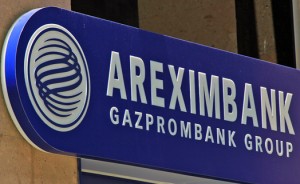
Although the OFAC imposed sanctions on "GazpromBank" several times in 2014 and 2016, for some reason the subsidiary bank in Armenia was left out of these penalties.
However, at that time, economist Ashot Yeghiazaryan stated that the 2016 sanctions will also cover two Armenian banks with Russian capital. It goes without saying that the first of those banks was "Areximbank-Gazprombank". However, despite this, the bank managed to avoid sanctions in secret ways. However, Areximbank-Gazprombank's open "rebellion" in recent months has resulted in it facing a harsh penalty from OFAC. Thus, in March of this year, the US called for a refusal to buy Russian gas in rubles and warned that strict measures would be taken against countries that do not comply. Instead of this decision, the Russian government called on the countries cooperating with "Gazprom" to pay for gas in rubles and to transfer the funds to the account in "GazpromBank" from April 1. After the new demands of the Russian government, Armenia became the first country to pay the price of gas in rubles, and it goes without saying that settlements are carried out by "Areximbank-Gazprombank", the financial subsidiary of "Gazprom" in this country. Minister of Economy Vaan Kerobyan confirmed this and said that all payments are made in Russian currency and deals will be conducted on the same principle from now on. (source)
Thus, "Areximbank-Gazprombank", the financial regulator in the settlement of fuel and oil products, was expected to be punished by the US for actually violating the requirements of the sanctions package.
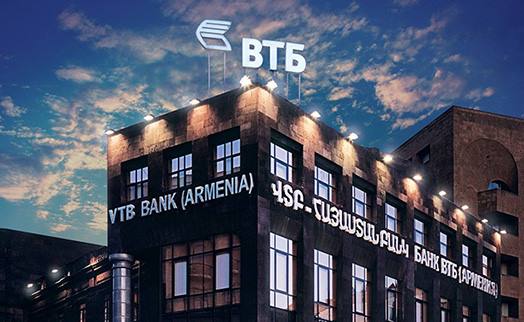
The name of another bank that received sanctions - "VTB Bank Armenia" is quite familiar to the banking community. VTB Bank Armenia, which is fully dependent on Russian financial institutions and whose charter capital is owned by Russians, has a significant share in the country's banking market, having about 25 percent of the country's bank portfolio. The point is that after the US and the European Union issued a warning to the subsidiaries working with the Russian "VTB Bank" in March, the Central Bank of Armenia officially announced that "VTB Bank Armenia" continues to provide all types of services and money transfers and other international operations without interruption."
At the time when international money transfer systems were closed to Russian banks, Armenian banks, including "VTB Bank Armenia", were conducting active money transfer operations with "Zolotoya Korona", "Contact", "Unistream", "QIWI" and other payment systems. This is also confirmed by the dynamics of monetary transactions. Armenian Finance Minister Tigran Khachatryan admitted that in the first half of 2022, the volume of remittances received by Armenia from Russia increased by 2.5 times or 155.7%. In particular, in June, money transfers from the Russian Federation were almost 5 times more than in the same period of 2021. (source)
In addition, after 2 huge international payment systems - "Visa" and "MasterCard" left Russia in March, the countries that joined "Mir", the National Payment Card System developed by the Central Bank of Russia, gradually began to abandon this system. Banks of Uzbekistan, Vietnam, Kazakhstan and Turkiye stopped the servicing "Mir" cards at the end of September. In those days, Pashinyan's government slyly announced the suspension of service to the cards of the Russian "Mir" payment system in order to please the US, but the country's Central Bank made a contradictory statement.
The Central Bank of Armenia, of course, was afraid of Russia's "Areximbank-Gazprombank" and "VTB Bank Armenia", so it abdicated its responsibility by declaring that commercial banks have free and independent decision-making powers in this matter. However, the decisions of the Central Banks in all countries are unconditionally implemented by them, as they apply to all commercial institutions. However, Armenia wanted to be hypocritical and "exaggerated" in this matter as well, "VTB Armenia" and "Akba Bank" exposed the policy of the Central Bank by continuing to service the "Mir" cards.
The disregard of international banking sanctions by Armenian banks, the anarchy in the banking sector, and the hypocritical policy of the Central Bank could not be ignored by the European Union and the United States, and the sanctions against "VTB Armenia" confirmed this.
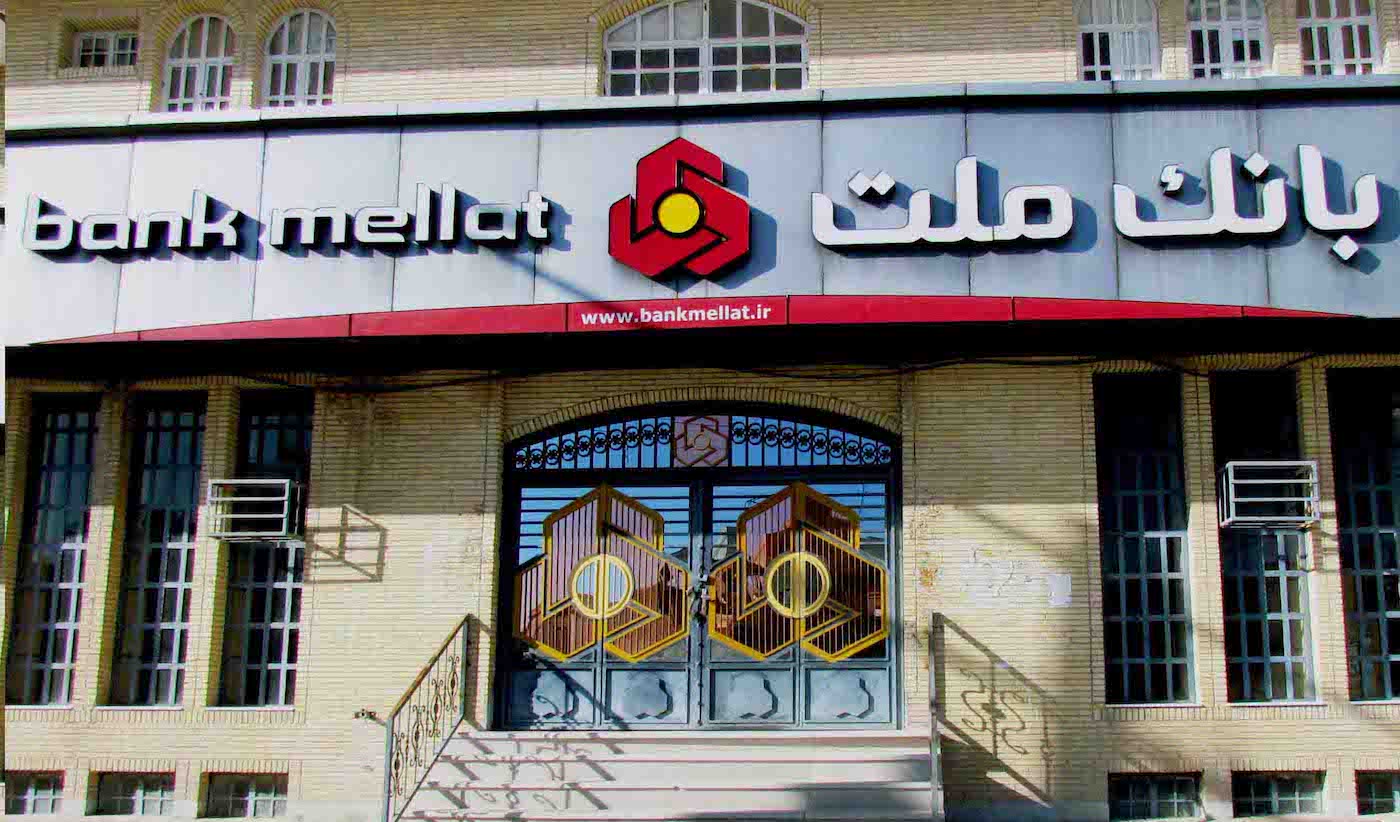
One of the leading institutions against the US sanctions package is Bank Mellat, which is backed by the Islamic Republic of Iran. The name of Bank Mellat, which grossly violates the rules of international sanctions, actively participates in various transnational dirty money transfers and is involved in financial frauds, is well known to the financial and banking community. "Bank Mellat", which operates in Armenia on the basis of direct Iranian capital, and whose charter capital is connected to the ruling religious-business network of Iran (the bank which started operating in Armenia since 1995 belongs to the financial group of Sayyid Mousavi Khomeini), has been the hegemonic financial structure in Yerevan's banking market for 27 years.
The mentioned bank resonated with the active participation of the United States and the European Union in the circulation of illegal funds during the sanctions regime against Iran in 2015 and 2019. Bank Mellat executive director Seyid Gholamirza Mousavi stated in an interview with the Armenian newspaper "Jamanak" at that time (2016) that “we intend not only to limit our activities, but to invest more in transport, tourism and restaurants and other business areas.”
That is, under the conditions of severe sanctions, Iran was conducting extensive operations at the regional level through financial and banking branches in Armenia. The worst thing is that the representative offices of "Bank Mellat" in Armenia and Syria were the flagship of network business in illegal arms trade and financing of terrorism and money laundering. This issue has caused serious international resonance, and on the basis of irrefutable evidence presented by the UN Security Council several years ago, information about Bank Mellat's support for terrorism and the circulation of dirty money was included in the UN resolution. (source)
The sale of the rich natural resources in the occupied lands, including gold, mercury, obsidian, molybdenum, marble, granite, zinc, copper, and other resources, as well as the raw materials required for the furniture industry through Iran, and in exchange for this, the so-called regime in Khankendi was financed by "Mellat". The Bank has "irreplaceable services". It is not an exception that high-ranking public officials of Armenia continuously use the services of this bank in "laundering dirty money" and financing terrorism with the criminal network in Karabakh. The former corrupt and criminal leadership built various infrastructures in the territories of Azerbaijan with the financing of "Bank Mellat", provided "financial assistance" to a number of projects in Karabakh, brought Iranian companies to this region and jointly exploited the wealth of Azerbaijan. A large part of financial aid to the terrorist regime in Khankendi was carried out by the Yerevan representative office of the Bank of Iran. (source)
Unfortunately, these facts and bitter historical realities indicate that Bank Mellat, one of the financial pyramids of the Islamic state, which Azerbaijan knows closely and considers its religious brother, supports terrorism in Karabakh, and how many Armenian terrorists obtained illegal weapons with those bank funds and killed Azerbaijanis. This fact also suggests that if Azerbaijan had not liberated its territories from occupation, the banking network of Iran and Armenia would have expanded international criminality even more.
"Bank Mellat" was the main partner of "Markel" CJSC, which changed the name and label of Iranian food and household goods and exported them to Russian and European markets under the name of industrial products of Armenia. (source)

Armenia's sanctioned airline Flight Travel LLC, specializing in air transport and tourism, was also a victim of Iran's financial games. The company, established in 2018, provides services as a subsidiary of the private tourism and airline company "Mahan Air" of Iran. (source)
In order to ensure its control and influence in Armenia's air transport, which is one of the most strategic areas, Iran managed to create a branch of the private carrier "Mahan Air" in Yerevan. This company, located in Tehran, operates international flights to the Far and Middle East, Central Asia and Europe and tries to increase its reputation in the region by attracting tourists from that region to Armenia.
The fact is that there have been many doubts about the activities of "Mahan Air" regarding the traces of the Iranian Revolutionary Guards and the carrying out of transportation to regions where terrorists are densely populated. The Office of Foreign Assets Control of the US Treasury said in a statement published on January 24, 2019 that there have been cases of the transportation of armed individuals consisting of foreign nationals supported by Iran to Syria by Mahan Air.
Also, with the financial support of Armenian and other groups in the region, "Mahan Air" played an active role in transporting various trained personnel, teenagers and 14-year-old children to the camp, and delivering weapons to the region. The airline also transported the bodies of fighters of the Fatemiyyun and Zeinabiyyun divisions killed in the battle in Syria to several airports in Iran. The participation of the mentioned civil aircraft carrier in the transportation of other military goods and military personnel, the active activity of this IRGC general Qassem Soleimani, etc. also announced the information about these cases. In all these processes, Yerevan-based "Flight Travel" LLC was in close cooperation with "Mahan Air". (source)

The US government has warned Flight Travel LLC, a close partner of Mahan Air, to stop supporting the above-mentioned criminal transportation, and even said that it faces the risk of sanctions. However, the Armenian company ignored these warnings. As a result, on September 30, it was put on the United States sanctions list.
Thus, "Flight Travel", which is dependent on the support of the Iranian airline, the current sanctions of the United States will lead to the blocking of all the company's property and service infrastructures.
Some time ago, "NTC REB" OJSC, headed by Aleksandr Sarkisyan, also faced sanctions. This company, engaged in the production of electronic devices for the defense industry, participated in the development of a radio electronic system for the use of unmanned aerial vehicles in the Russian army.
The inclusion of companies and legal entities belonging to Armenia in the US sanctions list once again confirms that Armenia, together with banking and financial groups belonging to Iran and Russia, actively participates in money laundering, financing of separatism and terrorism, committing cybercrimes, and the escalation of global transnational crime. Sanctioned companies are just the visible side of economic and financial crimes, it is not difficult to reveal the deeper layers of the Armenian criminal network at the continental level.




















